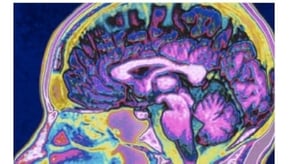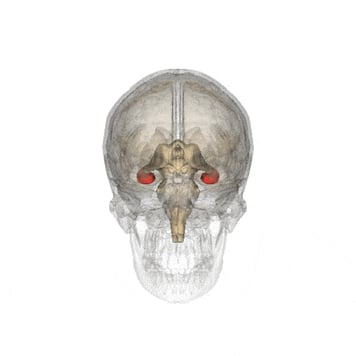
Why Meditate?
Anxiety disorders are the most common mental health issue in the U.S. today and is on the rise due to the 2019 coronavirus (Covid-19) Pandemic. Over 40 million people struggle with anxiety and our country spends $42 billion a year on treatments. Can we help our anxiety without medication and get effective results? Enter Dr. Kabat Zinn and Mindfulness Based Stress Reduction as a possible help.
Meditation has been practice for 2500 years as a spiritual pursuit so it must bring some benefit. But the relevant question today is: will mindfulness help my modern suffering -- my stress, my anxiety, my chronic pain? The answer is yes. Researchers have confirmed the benefits of meditation and this month a review of these studies was published in Brain and Cognition. They looked specifically at research on whether meditation changed brain structures and they found that significant changes occurred. They also found that when comparing long-term meditators and those training for only eight weeks the participants of both groups had similar fMRI profiles. Only eight short weeks of mindfulness created changes in the brain seen in practitioners with years of meditation!
Mindfulness Based Stress Reduction
.jpeg?width=300&name=Untitled%202-812149-edited-937639-edited%20(1).jpeg)
The technique used in the study was Mindfulness Based Stress Reduction (MBSR), and was created in 1979 at the University of Mass Medical Center by Dr. Kabat Zinn. He was convinced that he could help people work with their chronic pain and stress but teaching them mindfulness meditation striped of any religious references in a medical, rather than spiritual setting. Within the 8-week course, participants are taught mindfulness of body, in the form of body scans, and mindfulness of breath, walking meditation, as well as instructions to develop awareness of pain as sensation that can be tolerated rather than needing to be avoided.
The research on MBSR for pain management has shown that after the training people experience less pain and psychological discomfort. Other studies show that the benefits are there, however, the results vary depending on the specific chronic pain condition.
And now, 37 years later, MBSR is taught widely and research has moved beyond self-reporting to understanding the actual brain changes through use of imaging technologies.
Read Also:
Meditation and the Brain: What areas of the brain changed?

The prefrontal cortex, the cingulate cortex, the insula and the hippocampus, areas that are important for emotional regulation, increased in connectivity and activity.
The amygdala, seat of the fear/anxiety response, showed decreased activity and more connectivity with the prefrontal cortex, which is what is desired for emotional regulation and impulse control. This finding demonstrates that mindfulness has a positive impact on anxiety as measured by changes in it's neural activity of the amygdala.
 |
Brain Activity and Meditation: Red region of the brain shows the hippocampus which had been shown to have heightened activity during meditation by experienced meditators. (From Wikipedia)
|
The Research on Meditators
Neuroscientist Dr. Richard Davidson at the University of Wisconsin had done extensive research on meditators and documented the brain changes from meditation through using fMRI imaging. His findings have shown that the right pre-frontal cortex, which is connected with experiencing sadness, has decreased activity after meditation training and the left pre-frontal cortex, which is connected with feeling happiness has increased activity. Listen to his Ted Talk "How mindfulness changes the emotional life of our brains"
The self-reports from meditators of positive changes in emotions, a general feeling of calmness and mental clarity from Mindfulness Based Stress Reduction training can now been seen as physical changes in brain structures connected with mood regulation and positive emotions. In the brain region most connected with anxiety, the amygdala, the scans show decreased activity, and more connections with the "rational brain," the pre-frontal cortex, which means feeling less anxious and having more choice in how we respond to circumstances. Freedom at last!
Watch Related Webinar
how to calm performance anxiety with Neurofeedback
Neurofeedback is an excellent support for those with performance anxiety. The brain, which communicates through chemical reactions and electrical impulses, is designed to improve its own communication but needs a feedback system. There are various types of neurofeedback systems which we discuss more in detail in this article. The only Dynamical Neurofeedback available today is called NeurOptimal®. The system is designed to support the organic learning process. Through the millisecond-by-millisecond data collection (256 data points per second to be precise) the software alerts us to those inefficiencies so we can enhance overall performance. The system of alerting is through micro-interruptions in auditory input (music). Hearing is the main sense perception that the brain uses to detect changes in the environment. In essence, the precisely-timed interruptions, tell us to pay attention to the environment. Through awareness, change and improvements can happen.
Meditation and Neurofeedback - Do they give you the same results?
Meditation and neurofeedback training is similar in how they can impact our focus, awareness, and brain functioning. But there are also dramatic differences in the areas of the brain that are engaged and outcomes. For instance, NeurOptimal neurofeedback changes the unconscious limbic brain and the stress response. In this video below, learn the benefits of neurofeedback training and how NeurOptimal neurofeedback creates the ideal conditions for the best outcomes in your meditation practice.